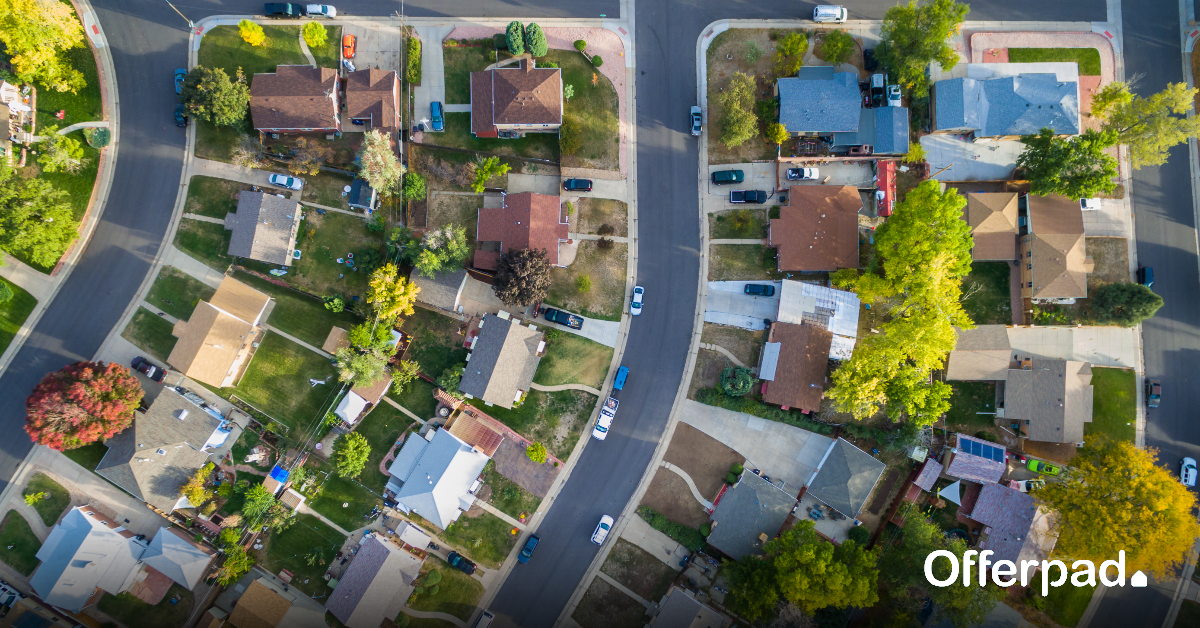
Are you in the market for a new home? One of the many things you’ll want to consider with your investment is whether the property is subject to an HOA—or homeowners association. While opinions widely vary in terms of whether HOAs are necessary, this article will take a more objective look at what they are and how their presence—or lack thereof—can shape your experience as a homeowner.
What is an HOA?
Let’s start with the basics. A homeowner’s association—or ‘HOA’—operates as the governing body within a residential community. These hyper-local organizations help establish housing standards that apply to all homeowners in the area they serve. HOAs are widespread and commonly found across clusters of single-family homes, condos and townhome communities. The governing board almost always consists of homeowners living in the communities they oversee.
Additionally, HOAs are generally responsible for community upkeep—helping maintain common areas in the neighborhood like parks and amenities such as swimming pools. Depending on your HOA, upkeep may include trash collection, mowing the grass—even picking up tree debris after a storm.
One of the more significant ways an HOA might affect you as a homeowner is setting restrictions on what structural and cosmetic changes you can make to your property. You may be prohibited from using certain exterior paint colors or be required to seek HOA approval before undergoing a massive renovation project in your backyard.
An HOA also serves as the authority for appropriate homeowner conduct and behavior. They might warn neighbors that they have too many weeds in their yard or they can’t park their car in the lawn—those who break the established guidelines may incur minor fees.
What benefits does an HOA provide?
If you drive through a neighborhood where homes are neatly balanced and have obvious curb appeal, it’s likely there’s an HOA operating behind the scenes.
There is financial incentive behind enforcing housing standards. Real estate can be a tricky business—the condition of the home across the street may directly influence your property value, for better or worse. Ever heard the expression ‘a rising tide lifts all boats’? That’s the idea here. Imposing written warnings and fines for minor infractions might aggravate homeowners, but they might appreciate those minor grievances down the road if they ever sell their home.
How much do HOAs cost?
HOA dues—the amount you pay directly to the homeowner’s association—can widely vary depending on several factors, including:
The state you live in
The type of property you own (single-family, condo, townhome, etc.)
The size of your community
The amenities within your community
Any utilities covered by your HOA
Recent data indicates the average monthly fee for an HOA is roughly $200—but take that with a grain of salt. Your best bet is always to look closely at the listing of any home you’re interested in for exact figures.
Are you buying a single-family home in a small community with few shared amenities? You’ll generally pay less in dues.
Are you buying a condo with central air conditioning that includes access to amenities like an onsite gym? You’ll generally pay more in dues.
What happens if you don’t pay your HOA fees?
It might be tempting to ignore your HOA’s Covenants, Conditions, and Restrictions (CC&Rs), or avoid paying the assessments—but that decision could come at great cost to you and ultimately your status as a homeowner. If you get hit with a fine for an infraction, it might be more prudent to pay it rather than ignoring it.
The penalties for avoiding payment range from additional fines to entire foreclosures—you may even be wracked with a lawsuit depending on situation. Keep in mind, the more hefty consequences really only apply in extreme cases, so don’t worry if you’re a bit late paying your dues—you’ll generally just incur a late fee in most cases.
Conclusion
Ultimately, the presence of an HOA might be the most trivial aspect of owning your home—you’ll likely be far more occupied making great memories in your place to really pay it much mind. A home is really what you put into it in the end—no one else!
Have questions about how the HOA operates in the area you’re looking to buy? Do your research—visit their official website for guidelines, maybe even knock on some doors and talk to residents. Lastly, be sure to factor in the cost of an HOA into your monthly mortgage payment.
If you have more questions regarding HOAs or want to explore your buying options, we’d love to chat! Visit us at Offerpad.com, check out our available homes for sale, or contact us today.

Leave a Reply